There are a few Sci-Fi novels I return to every year. It’s not so much scratching an itch, but rather reigniting a burning passion. Whenever I go back to these books, it’s like taking a deep breath of fresh air every time. There’s so much that’s stale, that’s stagnant. But these few books never fail to leave me inspired, that make me want to sit down at the computer and write a thousand words a minute.
So what’s the secret key to Isaac Young’s heart? What’s the one thing that’ll make me give your book a 10/10 every time? To put it simply, I love stories about exploring the unknown. I love grand expeditions into the untamed wilderness or venturing into derelict spaceships or excavating lost cities. I can’t get enough of it.
There’s nothing more I want to get out of a book than to feel like I’m putting on a captain’s hat and setting sail in the 17th century—back when the map wasn’t filled in yet. I want to forget that I’m sitting in a comfortable apartment sipping some bourbon, and that I’m in the farthest corners of space, touching down on an exotic world so distant that no man has laid eyes on it before.
I want to feel like I’m an explorer, right alongside the characters as they chart the unknown. And so Rendezvous with Rama feels like one of those special books that was written especially for me.
To cover a brief synopsis, it’s the 22nd century. Humanity has limited space travel, and a foreign object has entered our solar system. Upon further inspection, it’s revealed to be an O’Neill Cylinder, a type of megastructure that utilizes centrifugal force to generate artificial gravity. It’s fifty kilometers long and twenty-five wide in diameter, and it’s on course to swing around our sun and depart our star system as quickly as it has arrived. Our team of explorers have a narrow window of a few weeks to intercept the alien spaceship and learn as much as possible about it before it leaves.
Rendezvous with Rama is about exploring a bizarre and unknowable landscape filled with equally exotic lifeforms and trying to understand something that might be beyond your comprehension. What makes it special to me is that it’s not quite played off as Lovecraftian. You’re supposed to look at this world and feel a sense of awe. It’s unsettling in its sheer alienness, but it also stirs the imagination.
You’ve entered a realm built by giants. All the rules of what you thought about the world have turned upside down. When you look up, you see a metal sky with cities on the ceiling. The ocean wraps around the horizon like a blue ribbon. All around you are the indecipherable constructs of absent gods. Is there a purpose to them? There has to be, but nothing makes sense.
You wander into a courtyard, and you find a single alien flower growing out of the ground. It’s the first trace of life you’ve seen—the first that makes any sense to you. Before you’ve seen things that weren’t quite living but weren’t quite machines either. But this, here is something you recognize.
But why is this flower here? Is it an accident? Some seed landing on a fertile patch of soil? But how can that be? Everything here seems so meticulously designed—is it possible that the builders of this metal world overlooked something? But what sane purpose could this flower serve? Is it supposed to germinate on a new world? Does it do anything? Does it have political or religious significance? Is it supposed to serve as a symbol for something? Or is its purpose so beyond you that it could only be understood by the designs of those who built this unfathomable place?
Well, you’re an explorer. You’re here to try to uncover the secrets of this place. You pluck the flower, and it immediately wilts and dies. You feel as though you’ve done something you will never fully understand. But there’s no helping it now. You tuck the dead flower into your belt, and you continue trying to find a way back to your spaceship.
There is magic in that experience, of having an unsolvable puzzle placed before you and asked to try to figure it out anyway. Admittedly, it’s difficult to pull off. Too often you can veer into the obtuse or frustrating. If it’s too alien, if the puzzle is too hard, readers will throw up their hands and walk away. And yet equally difficult is capturing a sense of scope and scale that you need to evoke awe.
To pull it off, you need to create something that feels as real as the ground beneath your feet. It’s not a matter of saying something is amazing or perplexing or awe-inspiring. It’s about creating a scene—a story—that doesn’t need to say any of that because the reader is already feeling those things. I hate the phrase showing not telling because it’s used so frequently, but with this kind of story, showing really does speak for itself.
There’s a lot of stories that use the mystifying as a tease. I recall watching the first Alien movie, and I honestly would’ve been more excited if the rest of the movie had been about exploring the alien spaceship instead of focusing on the monster. Now that would’ve been really difficult to pull off, but that’s what Rendezvous with Rama is. It’s for that person who was born a few centuries too late to explore the world.
The story is extremely utilitarian in this sense. It does away with character development and thematic messaging and all the usual stuff you find in stories. It sets its eyes solely on that strange, metal horizon, and it doesn’t let go until the end. You’re there for the characters endlessly speculating and hypothesizing on what’s in front of them rather than interpersonal conflict or petty emotional drama. You’re there for enthralling mysteries, the questions half-answered, and the occasional sweeping revelation that assures you there is a logic behind the scenes. Rama makes sense to someone—something out there—and that’s more than enough to keep you turning the page.
The story evokes a feeling all too lost in modernity. The problem of living in a conquered world is that the frontier is no longer available to the common man. There was a point in history when you could walk down to the city port and sign up for a voyage to the farthest corners of the Earth. What were you going to find there? Who knows. And even though the experience of sailing was awful, that dream of setting foot in a foreign world was powerful enough that men signed up for it anyway.
Space travel is intoxicating because that’s the only place left (besides the deep oceans) where that dream is still alive. Of course, space is so vast and so difficult to cross that we as a species will probably never step on another world. But that’s just my opinion. Regardless, in the meantime we’re left with only stories to express this spirit.
I don’t think the mainstream has the capability to tell these sorts of stories anymore. It’s not just that the sense of adventure appeals to a masculine spirit all but forgotten in Hollywood. It’s that the essence of these stories requires the author to look beyond themselves in a fundamental way.
Arthur C. Clarke, the author of Rendezvous with Rama, only managed to do this with the first book. The sequels, co-authored with Gentry Lee, plunge into the melodrama that the first book distinctly avoids. Suddenly, you have a soap opera romance in the middle of exploring an alien spaceship, and it all goes downhill from there. The sequels turn the Rama spaceships from indifferent constructs of unknowable purpose to ships specifically sent to Earth for humanity. That awful twist still might’ve been able to be played right if the Ramans weren’t revealed to have the politics of your typical new atheist.
The most annoying tendency of authors is when they treat their beige-colored, uninspiring, and downright cringe-inducing beliefs as if they were religious revelation. It’s never a good sign when authors decide to give God their politics, and it’s worse when they lack the restraint to even be subtle about it.
Now that’s not to say that there’s not insight or real religious dialogue. But there’s a humility that’s missing in modern fiction. Stories are written with authors assuming they have all the answers—that there’s nothing that could ever possibly confound them. And this certainty prevents the confounding from being explored. Everything has to have the author’s preferred angle—just so the audience gets it.
I distinctly recalling watching Dune, and while I was trying to ingratiate myself with the story, every five seconds Chani would appear and tell me how I should be feeling. We have this completely alien culture and people, but there’s a 21st century feminist plopped in the middle of it, and there goes my suspension of disbelief.
To engage with that which is bigger than you means you have to surrender some control to it, and I think that’s lost on modern authors. Even with older authors like Clarke and Gentry, did it ever occur to them that maybe the hyper-advanced Ramans wouldn’t share their rationalist liberal worldview? That their own beliefs might not be the pinnacle of all thought? Maybe, but that’s not what made it into the final product.
I’m not saying you can’t treat beliefs as right or wrong, this isn’t an argument for relativism, but even among the most narcissistic of devout Christians, you’d be hard-pressed to find one who claims to fully comprehend God. Meanwhile, every new atheist thinks he’s got the roadmap to utopia.
In trying to approach the higher things, you must first acknowledge you are lower.
My previous article was reconciling with disappointment and a call to action. This one was articulating a vision of what I actually want the future of fiction to look like. Well, maybe not the future, but I would like a large niche for this kind of speculative work. There’s certainly been a narrowing in the types of stories we tell nowadays, and we’ve lost a lot of subgenres that I think ought to make a comeback. But you can’t impotently demand for things to happen. You actually have to do them.
I don’t have a Rendezvous with Rama type story planned for the near future, but the story has in great part inspired my own sci-fi serials The Last Human and to a more fantasy bent The Domes of Calrathia. I just wanted to share my love of something that I think goes underappreciated in the modern discourse.
In the future, I’m going to be changing up this substack to reflect more the things I love in media than the disappointments. Moving forward, I want to focus on the things that give me energy—not drain it away.
Whenever I write an article, it’s difficult for me to put it behind a paywall. If I write something, it’s because I feel that it is important enough to be shared with the widest audience possible. But then I also want to provide the maximum value to the people who are the most generous with their support. It’s a hard line to walk, and I don’t think I have this monetization thing down pat just yet, but we’re getting there.
I’ve decided I’m going to leave this up for the next three days before locking it behind a paywall. It seems a good compromise for this particular piece. There’ll be more paid subscriber exclusive articles this month, as well as more chapters for The Last Human and The Domes of Calrathia. And I’m also working on a major revision for Gigaheroes, not to mention guest articles for other platforms. So hopefully, there’s going to be a lot coming down the pipeline!
Hope you enjoyed, and I’ll see you around.




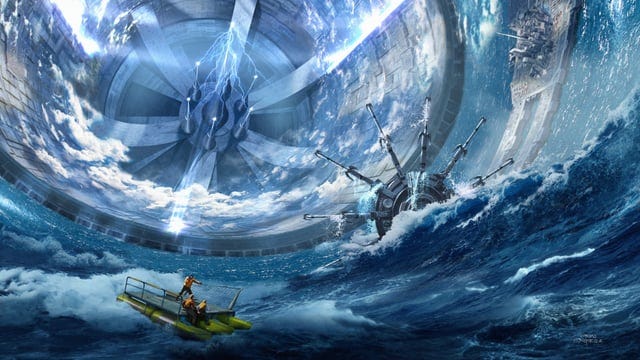
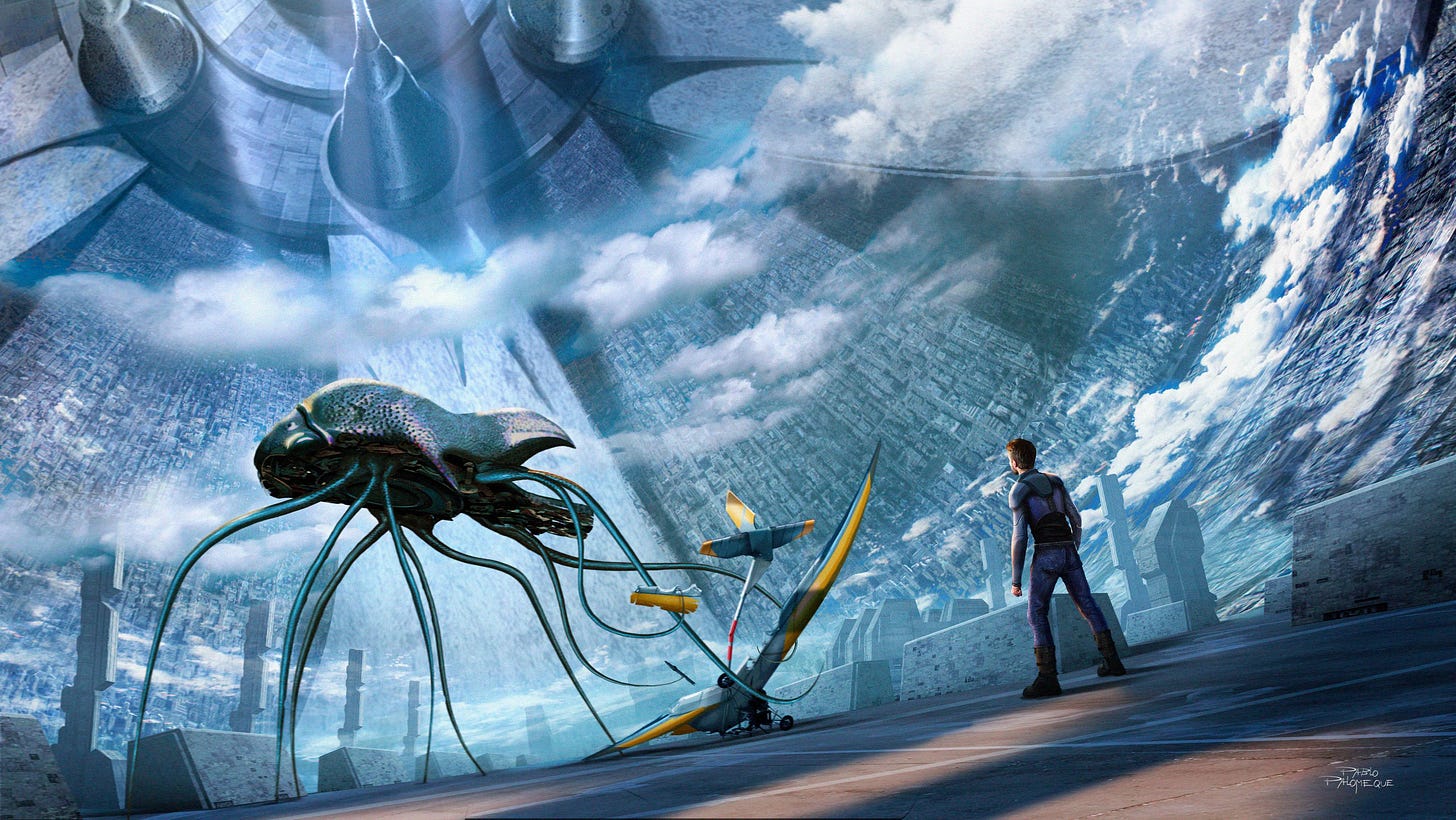
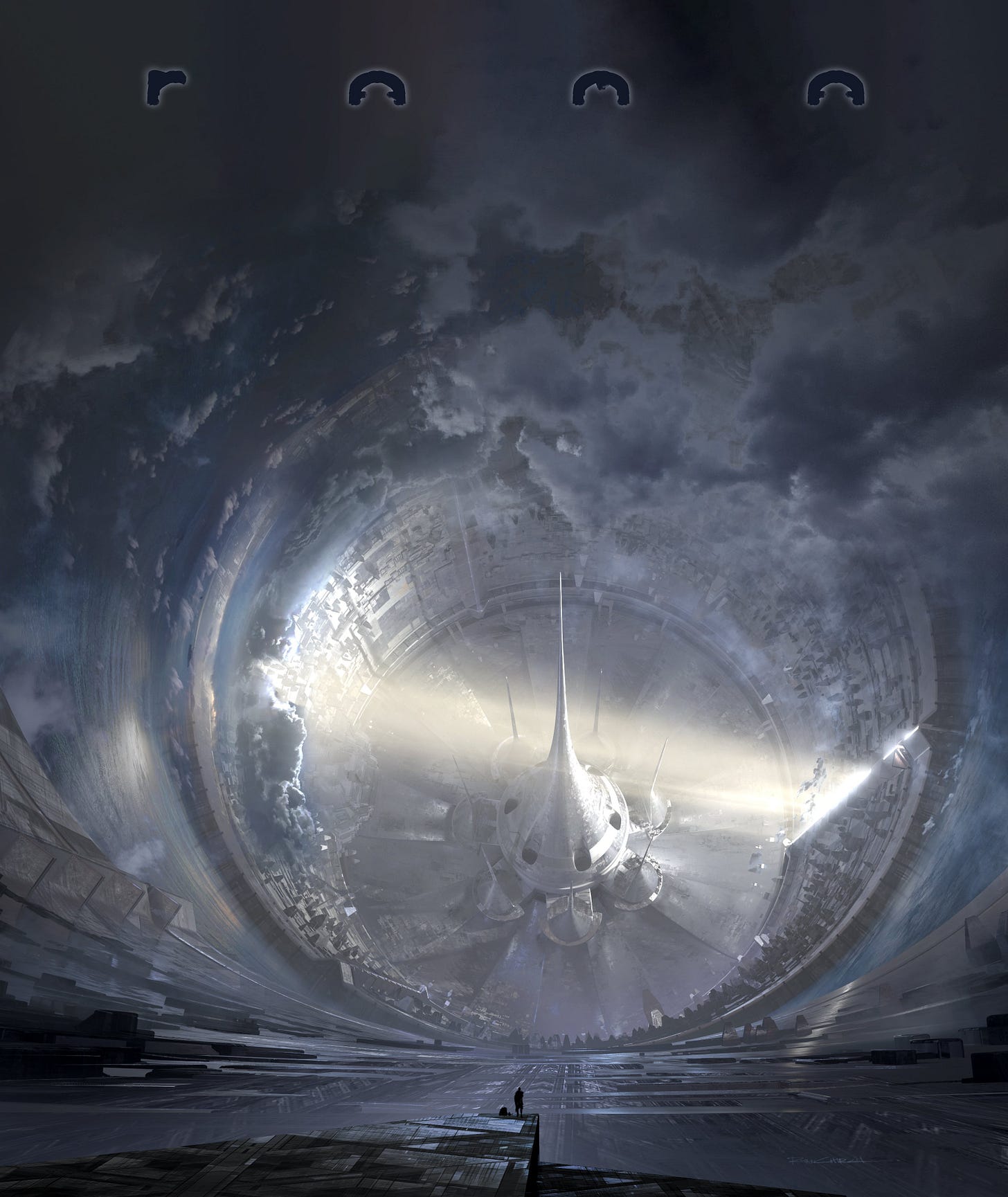
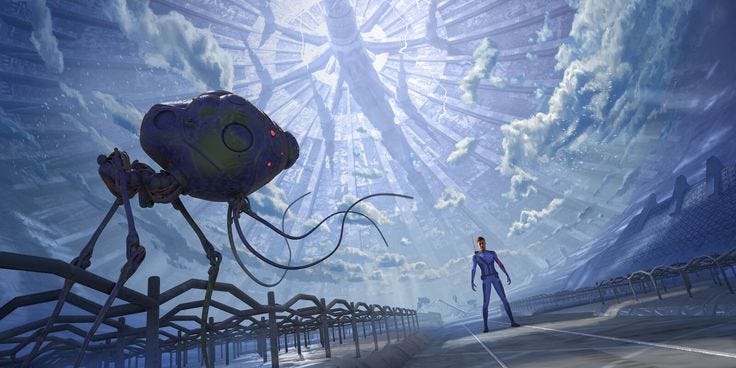
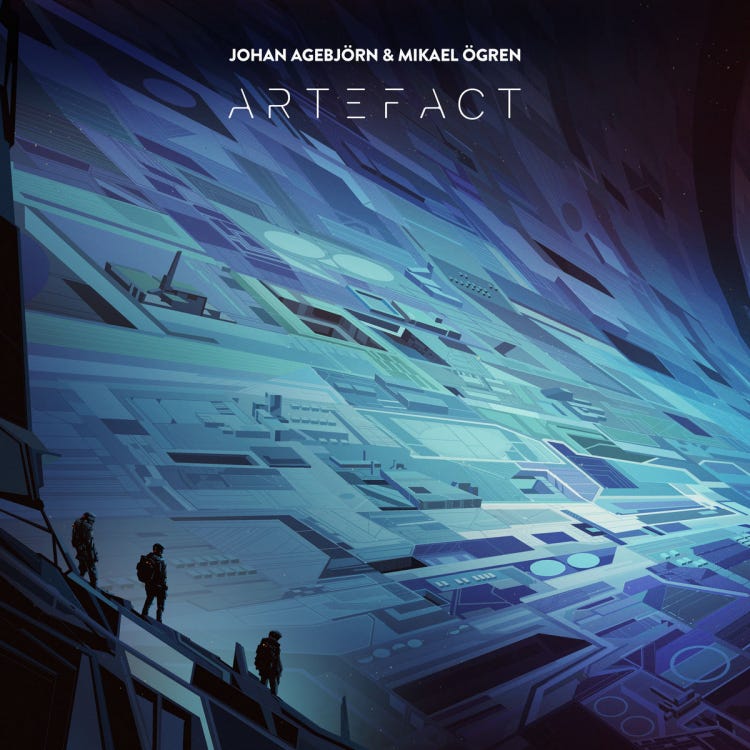
"Now that’s not to say that there’s not insight or real religious dialogue. But there’s a humility that’s missing in modern fiction. Stories are written with authors assuming they have all the answers—that there’s nothing that could ever possibly confound them. And this certainty prevents the confounding from being explored. Everything has to have the author’s preferred angle—just so the audience gets it."
You hit the nail on the head with what is wrong with modern fiction. It's the primary reason I put down and never pick up again much much modern fantasy and science fiction: everything is already spelled out.
I'm curious if you've read Stanislaw Lem's "His Masters Voice", which recounts humanities attempt to decipher a message from outer space. It's much like "Rama" but earthbound, where extraordinarily intelligent people attempt to decipher something ordered, artificial, but utterly alien.
This is among the first books that I read when I started reading science Fiction. Clarke is a great writer.